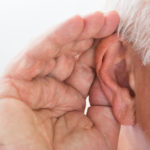Got Glue Ears?
Is there a natural approach to resolving a problem with “glue ears”? I would prefer that to surgery. Is there something I can take to dry up or dissolve the sticky fluid that has built up behind my eardrums and in my eustachian tubes?
Andrew Weil, M.D. | September 17, 2009

“Glue ear” is a diagnosis sometimes used to describe otitis media with effusion – in other words, a collection of fluid in the middle ear without the usual symptoms of an ear infection. The term glue ear is often used when the fluid is thick and sticky.
Fluid collects in the middle ear when the eustachian tubes that help drain fluids from the inside of the ear to the back of the throat are partly or completely blocked. This can happen when the lining of the tubes swells as a result of allergies, irritants (such as cigarette smoke), and respiratory infections such as a cold or flu. The tubes can then close and become blocked when air pressure increases suddenly, as it does when you’re on an airplane descending for a landing. These blockages are most common in babies and young children, but they can occur at any age.
If allergies are a factor, your best bet is to steer clear of the irritant involved if possible and to avoid cow’s milk in all its forms. The main protein in cow’s milk, casein, can increase mucous secretions in the middle ear and eustachian tubes. It also can irritate the immune system and worsen allergies. As a general rule, I recommend eliminating all dairy products to anyone with persistent allergies as well as to those with chronic respiratory conditions, frequent colds, bronchitis, sinus conditions and autoimmune diseases.
I discussed your question with Sandy Newmark, M.D., a California based pediatrician on the faculty of the Arizona Center for Integrative Medicine, who treats many of these cases in children. Dr. Newmark and I agree that craniosacral therapy by an osteopathic physician could be useful. This gentle manipulation of the bones in the head is very effective for ear infections. (To find an osteopath near you trained in this practice log on to www.osteopathic.org.) Dr. Newmark also recommends homeopathic medicine or acupuncture as approaches that could be helpful in your case. Although these effusions can resolve on their own, Dr. Newmark says that if the approaches suggested here don’t help, you may need to consider surgery to avoid damage to structures in the middle ear.
Andrew Weil, M.D.









